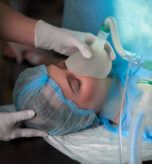Pericardiocentesis: A Vital Heart Procedure at Dev Hospitals
At Dev Hospitals, we specialize in advanced Interventional Radiology procedures that prioritize patient safety and comfort. One of our critical heart procedures, Pericardiocentesis, plays a crucial role in managing fluid buildup around the heart and preventing serious complications.
🫀 What is Pericardiocentesis?
Pericardiocentesis is a minimally invasive medical procedure used to remove excess fluid from the pericardial sac, the membrane surrounding the heart. This fluid buildup, often due to infection, inflammation, or other medical conditions, can put pressure on the heart and hinder its ability to pump efficiently — a condition known as cardiac tamponade.
At Dev Hospitals, our specialists use real-time imaging (like ultrasound or echocardiography) to guide a thin needle into the pericardium and safely drain the fluid. The procedure helps relieve symptoms quickly and can be life-saving in emergency situations.
Key Benefits of Pericardiocentesis at Dev Hospitals
- 🛡️ Prevents Life-Threatening Heart Compression
- 💓 Restores Normal Heart Function and Circulation
- ✳️ Minimally Invasive and Performed Under Local Anesthesia
- ⚡ Quick Symptom Relief Including Chest Discomfort and Breathlessness
- 🧠 Improves Overall Cardiovascular Stability
- 📊 Assists in Accurate Diagnosis of Underlying Conditions
Frequently Asked Questions (FAQs)
Why would someone need pericardiocentesis?
Will I be awake during the procedure?
Is pericardiocentesis a safe procedure?
What’s the expected recovery time?
Are there any risks involved?
Get in Touch
If you or a loved one is experiencing symptoms like chest pain, shortness of breath, or rapid heartbeat, timely intervention is critical. Contact Dev Hospitals for expert evaluation and treatment.




